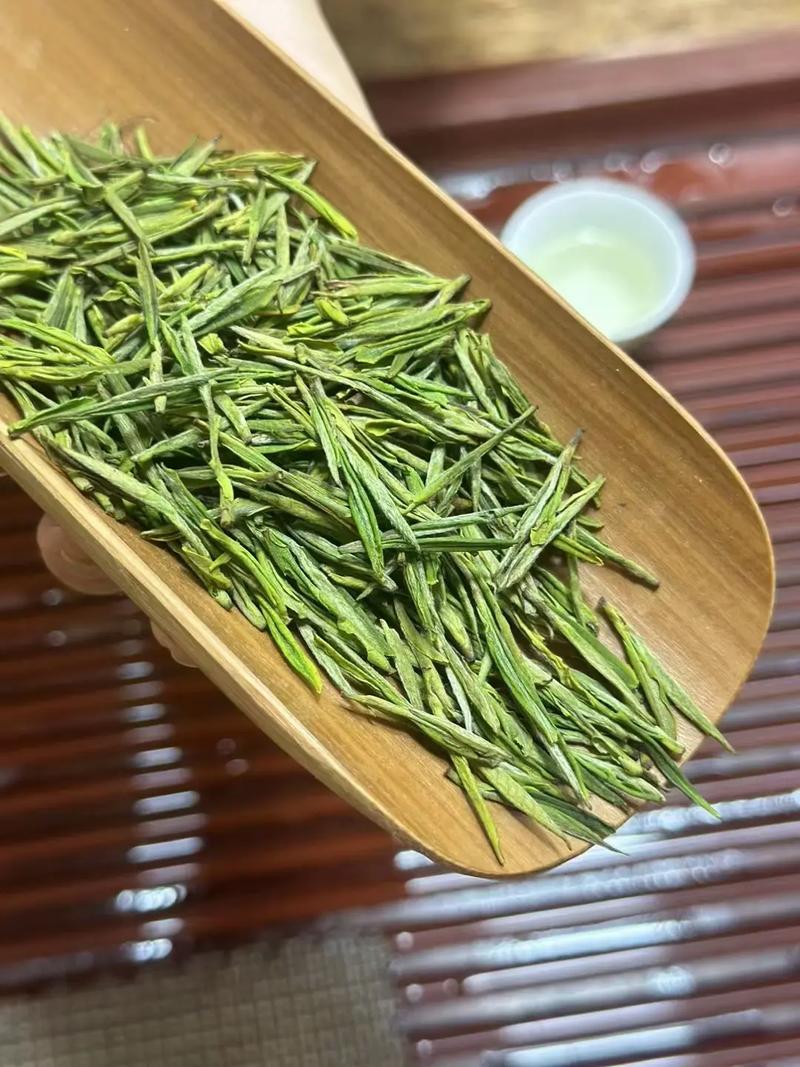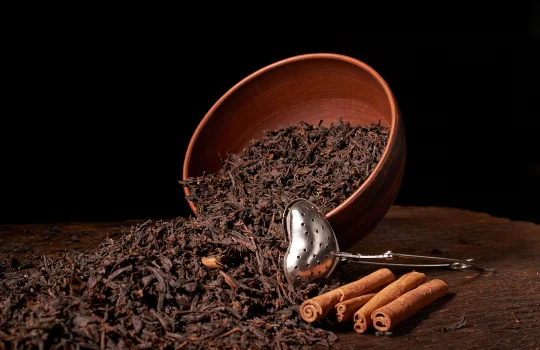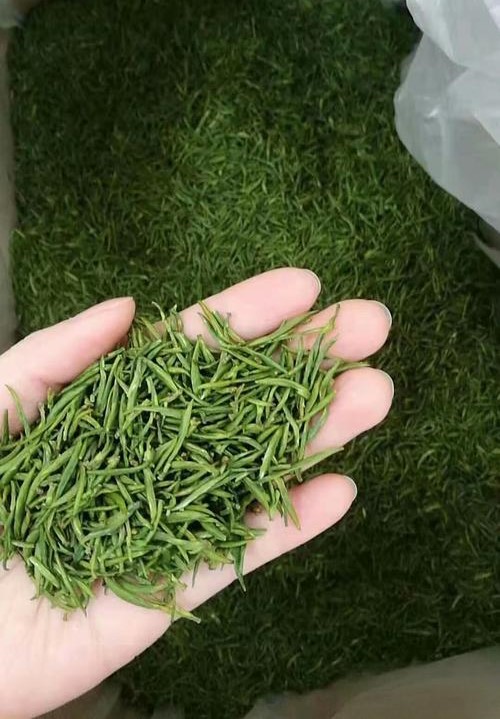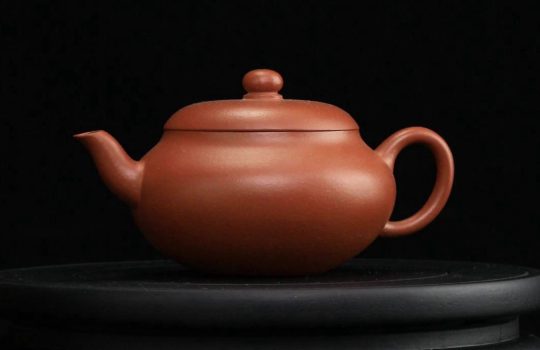Anji White Tea Origin: Anji Region, Zhejiang Province
Quality Characteristics: Dry tea leaves are straight and needle-like in shape, with plump buds covered in downy hairs, and a silvery-white colour with a hint of pale green.
Tea liquor: Light yellow and bright.
Aroma: Fresh and crisp, with a lingering delicate fragrance.
Taste: Fresh and mellow, with a sweet aftertaste.
Leaf Base: Buds and leaves resemble dancing jade pieces, with a jade-white leaf base and tender green veins.
Detailed Introduction to Anji White Tea
Anji White Tea is a rare mutant tea variety whose colour changes from white to green. The period during which Anji White Tea produces ‘white tea’ is very short, typically only about one month. Before the Qingming Festival, the tender buds of Anji White Tea are white; before the Guyu Festival, the buds and leaves gradually lighten in colour, mostly becoming jade white; from after the Guyu Festival to before the Summer Solstice, they gradually turn into variegated white and green leaves; by summer, the buds and leaves return to fully green,indistinguishable from ordinary green tea. The production process of Anji White Tea is the same as that of green tea, and since the period during which it produces white leaves is not long, Anji White Tea is still classified as green tea or white-leaf green tea. As Emperor Huizong of the Song Dynasty put it: ‘White tea is a distinct category, different from ordinary tea.’ Anji White Tea stands out as particularly precious among green teas due to its unique white-leaf characteristic.
Tasting Notes for Anji White Tea
Refreshingly smooth and sweet, with a fresh and mellow flavour, leaving a lingering aroma on the lips and teeth, with a sweet aftertaste that stimulates saliva production and an endless aftertaste.
Description of Anji White Tea’s Appearance
Appearance: Those with abundant, plump buds are considered premium quality; those with sparse, slender buds are of lower quality; and those with unevenly matured leaves or mixed with older leaves are of poorer quality. Taste: Fresh, mellow, and sweet are considered top-quality; coarse, astringent, and thin are of lower quality. Tea liquor colour: Apricot yellow, apricot green, and clear and bright are considered top-quality; reddish and cloudy are of lower quality. The tea must not contain twigs, old stems, old leaves, or wax leaves. If these impurities are present, the quality is poor.
Storage methods for Anji White Tea
Sealed packaging: Anji White Tea is highly susceptible to moisture absorption and odour absorption. Anji White Tea should be stored in sealed packaging and kept away from items with strong odours. In high-humidity conditions, the chemical changes within the tea leaves accelerate, reducing tea quality and even causing rapid deterioration. Additionally, tea leaves easily absorb odours when in contact with odorous substances. Therefore, Anji White Tea should be stored in sealed packaging away from items with strong odours.
Low-temperature, light-protected storage: At high temperatures, the chemical changes in the tea’s internal components accelerate, leading to faster quality deterioration. Light exposure causes chemical reactions in the tea’s internal components, causing it to lose its original characteristics. Therefore, Anji White Tea should be stored in a light-protected, low-temperature environment to extend its shelf life.
Home storage method: After sealing Anji White Tea in a tin foil bag, place it in a high-density, sturdy, odourless sealed plastic bag and store it in the refrigerator’s cold storage compartment. Even after one year, the tea will retain its original aroma and fresh colour.
The benefits of Anji White Tea
The L-theanine content in Anji White Tea is 1–2 times higher than in ordinary tea leaves. L-theanine promotes the secretion of interferon by blood immune cells, thereby enhancing human immunity. Regular consumption of Anji White Tea can regulate the concentration of neurotransmitters in the brain, help lower blood pressure in hypertensive patients, and benefit memory enhancement and neural cell protection. Anji White Tea has a cool nature and is an excellent beverage for clearing heat and relieving summer heat.
The Story and Origin of Anji White Tea
It is said that after Lu Yu, the Tea Sage, completed his masterpiece *The Classic of Tea*, he felt that there must be even better tea in the world. One day, he visited a mountain within the jurisdiction of Huzhou Prefecture and noticed that the buds of the tea plants there were white and lustrous like jade, truly beautiful. Lu Yu immediately ordered his tea attendants to pick and process the leaves, then boiled a cup of water from the nearby stream. Lu Yu took a sip, looked up to the sky, and exclaimed, ‘I have finally found you! This life has not been in vain!’ Before his words had even finished, Lu Yu ascended to heaven…
After becoming an immortal, Lu Yu went to the heavenly court and presented the white tea. The immortals tasted it and all exclaimed, ‘Marvelous!’ The Jade Emperor was overjoyed and said, ‘Marvelous! This is a divine tea; it must not remain in the mortal world.’ He then ordered Lu Yu to take five hundred heavenly soldiers to move the white tea to the heavenly court. Lu Yu could not bear to see this finest tea disappear from the mortal world, so he secretly kept a single white tea seed, which became the only white tea king in the mortal world.




